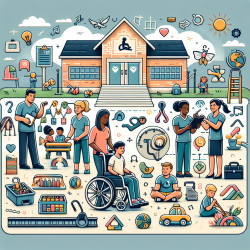In the realm of mental health systems, engaging youth in decision-making processes is not just beneficial—it's essential. The research article "Implementation of a Youth-Adult Partnership Model in Youth Mental Health Systems Research: Challenges and Successes" sheds light on how these partnerships can be effectively integrated into healthcare settings. This blog explores the key takeaways from the study and offers practical advice for practitioners looking to implement similar models.
Understanding Youth-Adult Partnerships (Y-APs)
Youth-adult partnerships (Y-APs) are collaborative relationships where both youth and adults engage in shared decision-making. This approach empowers youth by involving them in decisions that affect their lives and draws on their unique skills and expertise. The McCain Centre at the Centre for Addiction and Mental Health (CAMH) has successfully implemented a Y-AP model that integrates youth into various mental health initiatives.
Key Components of Successful Y-APs
- Flexibility: Roles should be adaptable to allow both youth and adults to showcase their talents. Flexibility in deadlines and goals is crucial.
- Mentorship: Both formal and informal mentorship opportunities should be available, fostering reciprocal learning between youth and adults.
- Authentic Decision Making: Youth should have genuine opportunities to participate in decision-making processes, avoiding tokenism.
- Reciprocal Learning: All parties are both teachers and learners, relying on individual strengths to create successful outcomes.
The McCain Model of Youth Engagement
The McCain Model exemplifies how Y-APs can be structured within a healthcare setting. It emphasizes flexibility by allowing youth engagement facilitators to determine their schedules and work environments. Mentorship is integral, with adults providing guidance on research and policy while learning from the youth about effective engagement strategies.
This model also prioritizes authentic decision-making by involving youth in research, proposal writing, and presentations. Reciprocal learning occurs as both youth and adults share their expertise, creating a dynamic environment for growth.
The Success of the McCain Model
The success of the McCain Model is evident through high levels of sustained youth engagement. The demand for collaboration with youth engagement facilitators has increased, leading to more networking opportunities for young people. The model's flexibility allows for diverse involvement, catering to different skills and interests.
Recommendations for Practitioners
If you're considering implementing a Y-AP model in your practice, consider these recommendations:
- Develop Early Partnerships: Engage young people early in the planning process to ensure their voices are heard.
- Create Guidelines: Establish clear guidelines for youth engagement that address potential organizational barriers.
- Diverse Recruitment: Develop recruitment methods that reflect the diversity of the population you aim to serve.
The McCain Model demonstrates that with thoughtful implementation, Y-APs can significantly enhance mental health systems by fostering meaningful youth engagement.










